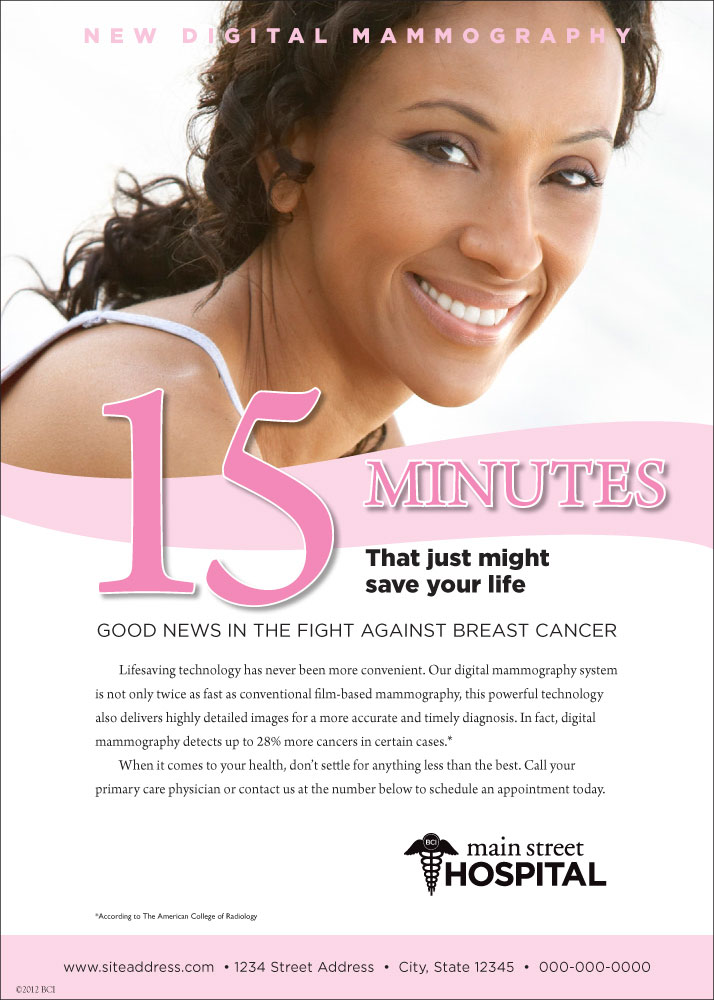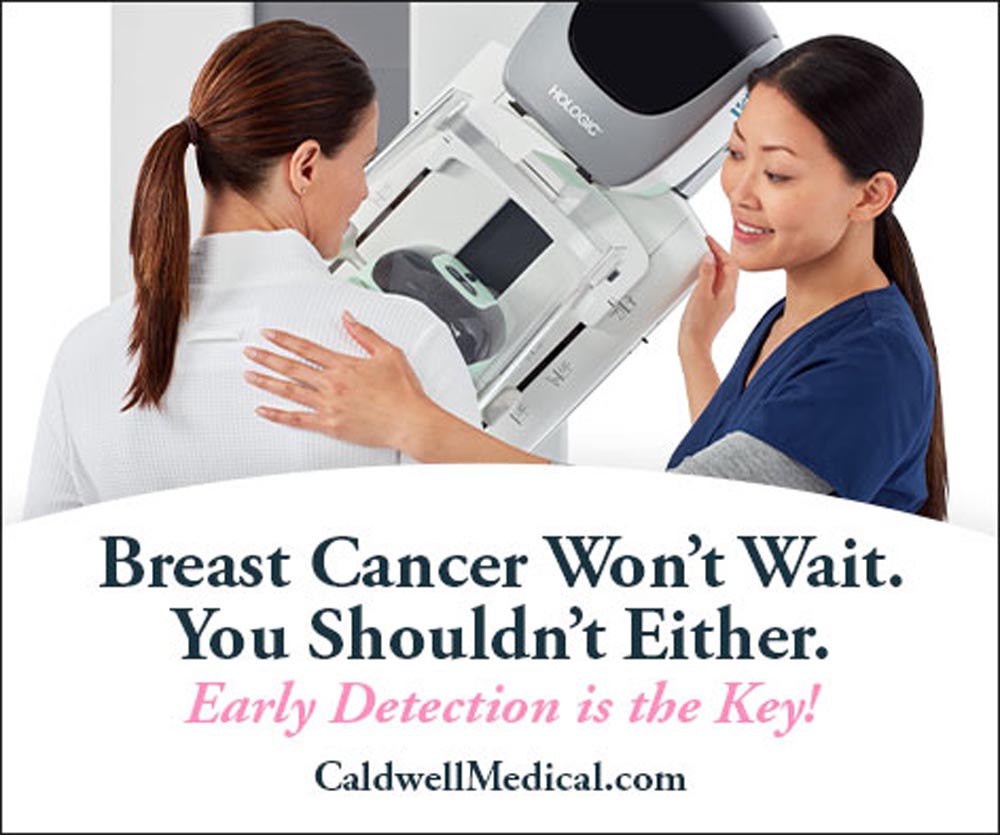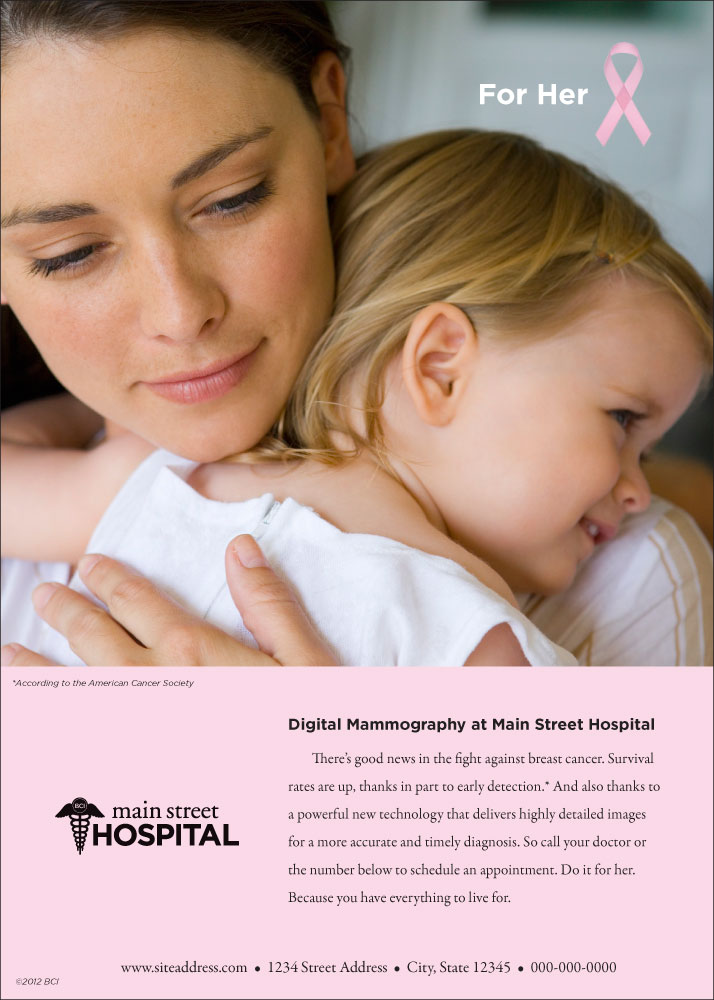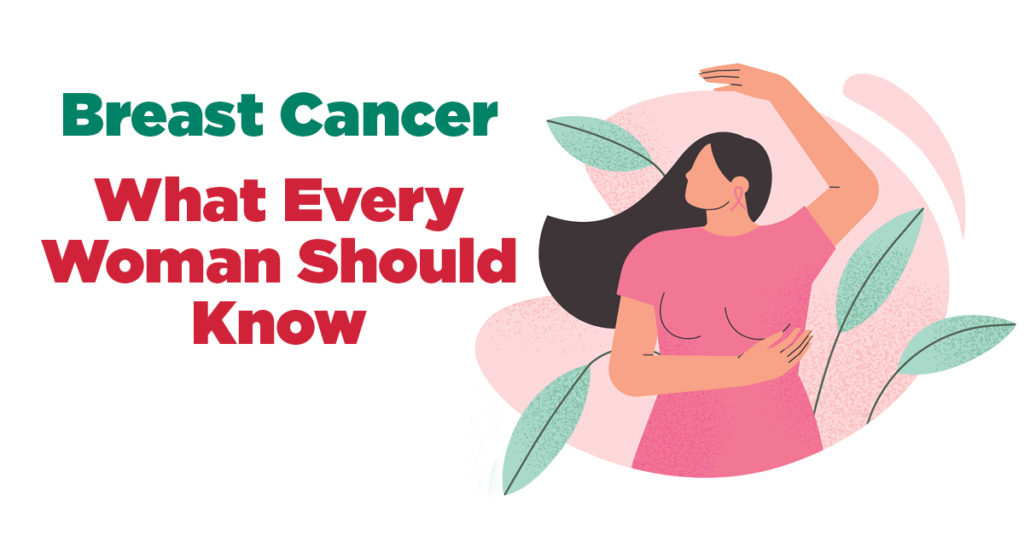
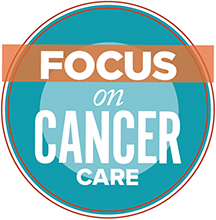 Breast cancer is the most common form of cancer in American women except for skin cancer. In fact, about 30 percent of all new female cancers each year are breast cancer. Protecting yourself starts with knowing your risk factors and staying up to date with your mammograms.
Breast cancer is the most common form of cancer in American women except for skin cancer. In fact, about 30 percent of all new female cancers each year are breast cancer. Protecting yourself starts with knowing your risk factors and staying up to date with your mammograms.
Primary Risk Factors You CANNOT Control
- Age: Most breast cancer occurs after age 50.
- Family History: You are more at risk if you’ve had a mother, sister, daughter or multiple family members on either side of your family who have had breast or ovarian cancer.
- Dense Breasts: About one in 10 women have dense breasts, which have less fatty tissue and more connective tissue. Dense breasts can also make it harder to see tumors on a mammogram.
- Reproductive History: If your menstrual period started before age 12 or menopause started after age 55, you have been exposed to hormones longer, raising your risk of breast cancer.
Certain Risk Factors You CAN Control
- Not being physically active.
- Being overweight or obese after menopause.
- Taking hormones that include both estrogen and progesterone.
- The more alcohol you drink the greater the risk.
A mammogram, which is a low-dose X-ray of the breast, is considered the best way to detect breast cancer early.
When to Have a Mammogram
- Ages 40 to 44: You have the option to start having an annual breast cancer screening.
- Ages 45 to 54: Have a mammogram every year.
- Age 55 and older: You can decide to have a mammogram every two years or continue the annual screening.
How to Prepare
Try to schedule your appointment at the same facility every time so it is easy to compare your mammogram to previous ones. In the days before your exam, consider cutting back or not drinking caffeine, which can make your breasts more tender. On the day of the exam, don’t use deodorant, powders, lotions, creams or perfumes under your arms or around your breasts, and wear clothing that makes it easy to undress above the waist.
What to Expect
A mammogram technician will place you in front of a machine that will take four images, two views of each breast. For each image, your breast will be compressed for 10 to 15 seconds. You will be asked to hold your breath so motion doesn’t affect the images. You may feel some discomfort. If the sensation becomes painful, tell your technician. About 10 percent of women get called back for additional testing. If you do, this does not mean you have cancer. In most cases, the radiologist looking at your mammogram needs a clearer image.
Sources: CDC, American Cancer Society, The Iowa Clinic
Marketing Application
Cancer screenings are relevant healthcare topics at any point during the year. Therefore, it is appropriate to raise awareness about the wide range of diagnostic imaging and cancer screening services available through your hospital and clinics, including mammography, colonoscopies, skin cancer screenings and more. Internal medicine providers, radiologists, oncologist and other specialists are appropriate voices to promote this awareness. Effective marketing tools might include social media, digital media and print, in tandem with a strong call to action to learn more about and to schedule an appointment.
About Brentwood Communications, Inc.
Brentwood Communications specializes in healthcare marketing. Through our monthly AdBank subscription service, thousands of field-tested marketing materials — including content related to women’s health — are available and can be easily customized to reflect your hospital or clinic’s existing brand.
Click here to discover more about AdBank and how Brentwood Communications specializes in providing marketing support for non-urban hospitals.
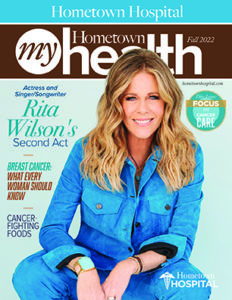
Brentwood Communications also helps hospitals stay in touch with their communities through an informative and cost-effective digital and printed magazine called My Hometown Health, a powerful tool to help promote better health and raise awareness of key services available at the hospital. Actress and Singer/Songwriter Rita Wilson is featured in our current Fall 2022 issue, which focuses on cancer care. Rita talks openly about her breast cancer diagnosis and the healing power of music and a positive outlook.
Brentwood Communications makes creating and publishing a customized, local community health magazine easy and convenient. Click here to learn more, or contact us by email.

